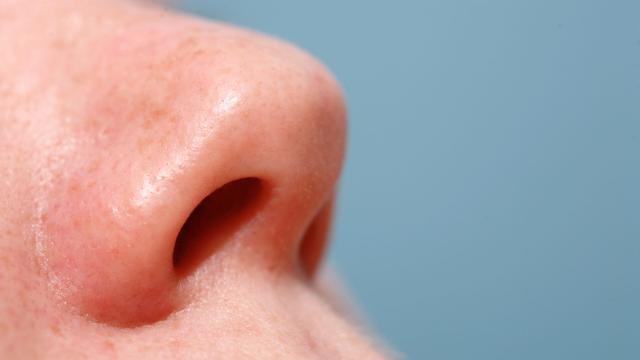A recent study is one of the first to highlight the plights faced by a small segment of the population: people who can’t smell the world around them normally. In it, sufferers describe feeling depressed, unable to enjoy eating, and sometimes even scared for their lives.
People can have problems smelling in a variety of ways. Some experience a sudden difference in the scents things give off. Others start to detect phantom smells. And yet others have a partial or total loss of smell, either from birth or after an injury or illness. These disturbances typically extend to a person’s sense of taste as well.
For the new study, the UK-based researchers worked with Fifth Sense, a charity established in the UK for people with smell and taste disorders, as well as with the Smell and Taste clinic at the James Paget University Hospital. The scientists scoured through the written testimonials of 71 consenting patients who had reached out to the clinic and shared their experiences living with a smell disorder. The patients ranged in age from 31 to 80 and were predominantly women. Using computer software, they isolated the common themes of these experiences.
Patients, the authors found, commonly talked about feeling isolated and sad, having trouble with their relationships, and feeling unable to function daily as a result of their condition. Some expressed shame about needing help from others and lamented the loss of everyday joys like eating and cooking.
“The inability to link smells to happy memories was also a problem,” study author Carl Philpott, a doctor at the clinic as well as a researcher at the University of East Anglia in the UK, said in a statement released by the university. “Bonfire night, Christmas smells, perfumes and people—all gone. Smells link us to people, places and emotional experiences. And people who have lost their sense of smell miss out on all those memories that smell can evoke.”
Research has largely focused on why and how often these smell disorders happen. We know, for instance, that infections, neurological conditions, and dementia are common causes of hampered smelling. Studies have suggested that olfactory disorders might affect over 10 per cent of the general population, while the total loss of smell—known as anosmia in medical lingo—affects around 5 per cent.
But there’s been less attention paid to how these disorders affect people’s daily lives, according to the authors of the new study, published last month in the journal Clinical Otolaryngology.
Sufferers also described harrowing repercussions from their inability to detect signs of danger, like the smell of a gas leak or smoke. That sort of experience, as it turns out, is all too familiar to Riley MacLeod, editor-in-chief of Kotaku, who was born without his ability to smell.
“I would agree that ‘hazard perception’—not being able to smell gas, for instance, which happened to me yesterday, or when food goes bad—is a big stress for me,” MacLeod told Gizmodo via Slack.
There was a bad gas leak in my building today. At the time I thought it was funny trying to explain to the gas company dude, while we waited for the fire dept, that I have no sense of smell, but now I’m like, if he didn’t show up before I lit the stove, what would’ve happened?
— Riley MacLeod (@rcmacleod) January 23, 2020
The experiences voiced by several patients in the study who worried about their body odor also rang true to MacLeod.
“Personal hygiene is a big struggle—as someone who was born without a sense of smell, I have this vague understanding that, like, ‘you have to change your clothes’ or ‘you smell bad when you get sweaty,’ but I don’t actually know what that means, so how I smell is sort of this invisible problem that I have to deal with, but, to me, essentially isn’t real,” he said, adding that he will “deputise” a close friend or coworker to let him know if he smells.
This research doesn’t offer any help at finding a cure for anosmia, but the findings show why it’s important for others, especially doctors, to understand the distress these patients go through, according to the authors.
Many patients in the study described feeling frustrated by the dismissive attitude they encountered from other doctors before visiting the Smell and Taste clinic. Those who did feel supported by doctors, Philpott said, were immensely grateful, even if the doctors couldn’t actually cure their problem.
As for MacCleod, there are some unexpected upsides that come with a lack of smell.
“I’m really useful for taking out stinky trash or getting my own seat on the subway when the car smells, and I spent several years working as a dog walker because the smell of wet dog or animal poop doesn’t bug me!” he said. “I’ve also dated, apparently, several very smelly men, which I guess benefits those men more than it benefits me, but still.”
